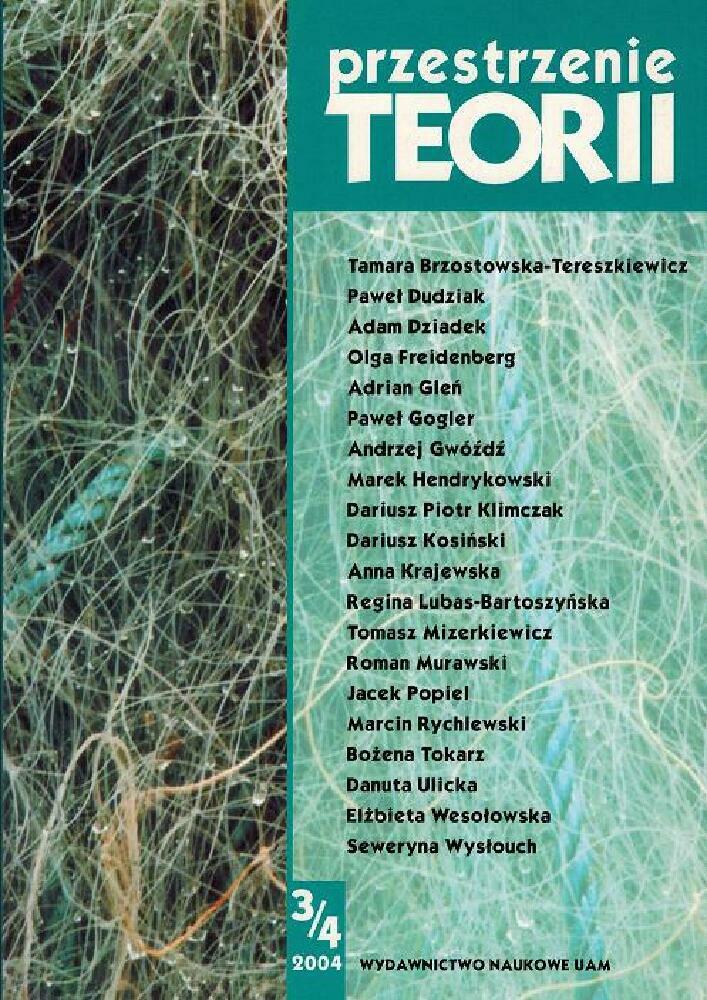Abstrakt
Thanks to Buddhist contexts, present in S. Beckett's two long plays (The Endgame and The Happy Days) we understand that death, signifying the ultimate Nothingness and Emptiness appears to be the change of the perceiving substance, which getting rid of the body, is joined with the nonbodily content of the things. Beckett's doxology of the light makes it that since Life is compared to the flame, Death depicts its extinguishing, but at the same time the value of eschatological hope is expressed through Buddhist motifs (karma of the Yoga, little Buddha, nirvana, the wheel of Samsara and the like). Death is for Winnie, Hamm and Clove an internal act of transgression, touching directly the dying person, but at the same time the heroes of Beckett's plays transfer their feeling connected .with dying to the external observer (the spectator). And so Beckett achieved the dimension of the most important function of the theatre of „participation" and „initiation". Recognising Buddhist contexts in Beckett's plays, we accept Death as one of the stages of the biological cycle - being a peculiar kind of repayment of a debt to nature.Licencja
Autorzy
Autorzy tekstów przyjętych do publikacji w czasopiśmie „Przestrzeniach Teorii” są zobowiązani do wypełnienia, podpisania i odesłania na adres redakcji umowy o udzielenie nieodpłatnej licencji do utworów, z zobowiązaniem do udzielania sublicencji CC.
Zgodnie z umową, autorzy tekstów opublikowanych w czasopiśmie „Przestrzeniach Teorii” udzielają Uniwersytetowi im. Adama Mickiewicza w Poznaniu niewyłącznej i nieodpłatnej licencji oraz zezwalą na użycie sublicencji Creative Commons Attribution-NonCommercial-NoDerivatives 4.0 International (CC BY-NC-ND 4.0).
Autorzy zachowują prawa do dalszego, swobodnego rozporządzania utworem.
Autorzy, którzy wykorzystują w swoim tekście cudze utwory (np. ilustracje, fotografie) proszeni są o dostarczenie do redakcji czasopisma zgodę na publikację od uprawnionych podmiotów.
Użytkownicy
Zainteresowani użytkownicy internetu uprawnieni są do korzystania z utworów opublikowanych po 2015 roku „Przestrzeniach Teorii” tylko w calach niekomercyjnych, pod następującymi warunkami:
- uznanie autorstwa - obowiązek podania wraz z rozpowszechnionym utworem, informacji, o autorstwie, tytule, źródle (odnośniki do oryginalnego utworu, DOI) oraz samej licencji;
- bez tworzenia utworów zależnych - utwór musi być zachowany w oryginalnej postaci, nie można bez zgody twórcy rozpowszechniać np. tłumaczeń, opracowań.
Do wszystkich tekstów opublikowanych przed 2015 r. prawa autorskie są zastrzeżone.
Inne
Uniwersytet im. Adama Mickiewicza w Poznaniu zachowuje prawo do czasopisma jako całości (układ, forma graficzna, tytuł, projekt okładki, logo itp.).
